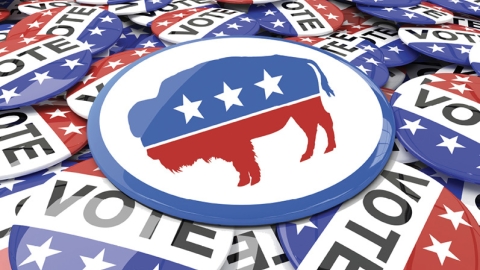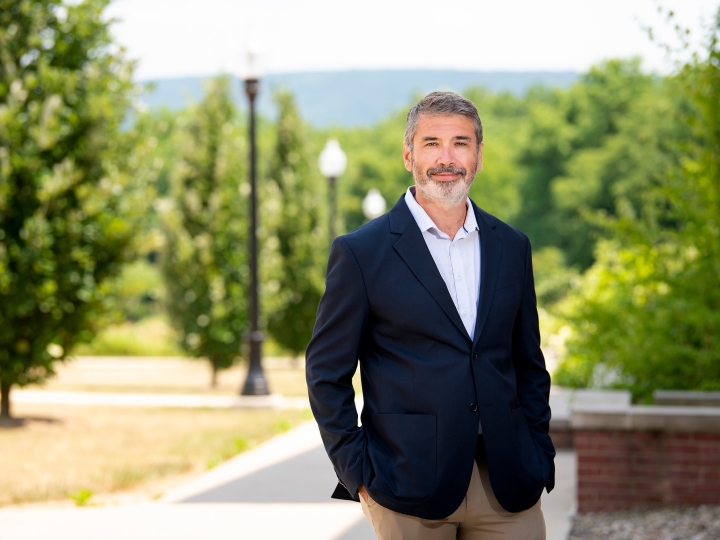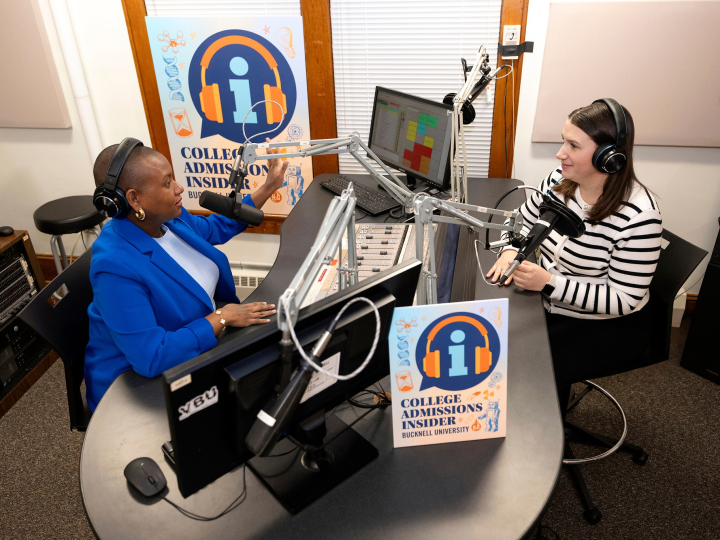
Electing to Be Civil
November 2, 2016
Array
League of Women Voters of Lewisburg teams up with Bucknell political scientists to encourage new voters.
The 78 million millennials are passionate about many causes and prone to volunteering more than other generations, according to polls, but voting is one activity where they lag behind their elders. The Mauch Millennial Project, a joint venture of Bucknell and the League of Women Voters of the Lewisburg Area (LWVLA), is tackling that dilemma by supporting four student-run election forums this fall.

Bucknell students tend to be very engaged when it comes to community service, such as working on cancer awareness," says Brady Clapp '17, who along with Emily Cottle '17 was chosen to lead on-campus efforts to register first-time voters and increase student voter turnout overall.
"Students tend to not be very engaged when it comes to civic duties like voting," Clapp adds. "We're trying to change that through this fellowship. We will try to draw connections between problems they're trying to solve through community service and activism and elective ways to go about solving those problems."

As discussion leaders, Clapp and Cottle receive a $2,000 stipend as well as $1,000 to support programming. Up to $1,000 more is budgeted for assessment of the program, which will be administered by the two students and the fellowship's faculty mentor, Professor Chris Ellis '00, political science. A $45,000 commitment from LWVLA members Jim and Rebecca Mauck supports the inaugural program and two more, in the fall semesters of 2018 and 2020, meant to build on the 2016 efforts.
The first fellows, chosen through a competitive process, says LWVLA President Susan Warner-Mills '79, "are highly intelligent and passionate; we hope they will engage their fellow students and help us learn how to do so, too." The Lewisburg league is one of the largest in the state, with 128 members, according to Janice Bigelow, publicity coordinator. She stresses that, like the league, the Mauch effort is strictly nonpartisan in orientation.
Though Clapp is president of the College Democrats, and Cottle is a strong Republican, the students are committed to upholding the nonpartisan standard. "Brady and I have studied politics from an academic point of view, and we're used to analyzing things in a nonpartisan way, so that shouldn't be too challenging for us," Cottle says.
"We want to keep this about people coming to the forums and less about Emily and me leading the forums," Clapp says. The first forum, he says, provided an introduction to the political process and this particular election year. The next two, one in September and one in October, "delved more deeply into election topics students are interested in, such as college debt, while the final session, after the election, will explore what happened, why it happened, and important trends."
Ellis expects the forums will be civil. "Our students know the difference between advocacy and serious discussion," he says. "They will debate, but remain friends at the end of the day. Bucknell students are light-years ahead of students at some other places in being able to engage in serious, respectful discussion across lines of political difference."
Still, engaging a greater proportion of the student body will not be easy. "There is a select group that is politically engaged and informed, and they're the most vocal group on campus," says Cottle. "There is a huge untapped group of Bucknell people who don't feel comfortable expressing themselves in public forums or haven't gotten involved at all. The challenge is to reach them, and that is part of the reason we're working through the Residential Colleges program to host forums."
Though the forums are designed to focus on the presidential race, Cottle says she hopes to "touch on down-ballot races as well. That's something I'm very passionate about, and it frustrates me when my peers say they won't vote in them. I stress that congressional and local races are just as important as presidential races."
Her hope is that the program will make an impact beyond the boundaries of one central Pennsylvania campus, serving "as a test case to see if this program could be used on other campuses." Warner-Mills confirms that "the Mauches and the national League of Women Voters will consider duplicating the program in communities across the country."
Clapp, too, hopes "this will be viewed as a strategy for reaching out to college students. … Every day our generation turns on the TV or goes on Facebook or Twitter and sees congressional gridlock. They believe this is a system that doesn't work for them and are very disillusioned with politics. If we get involved and get heard, elected officials will have no choice but to listen to us."

